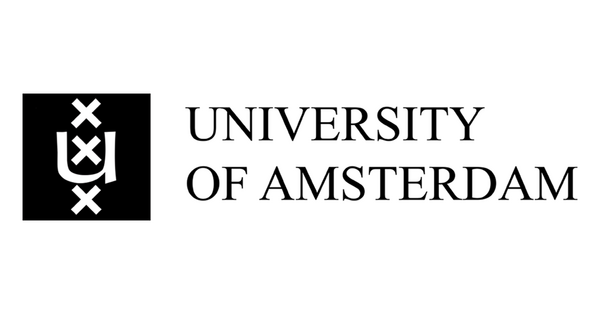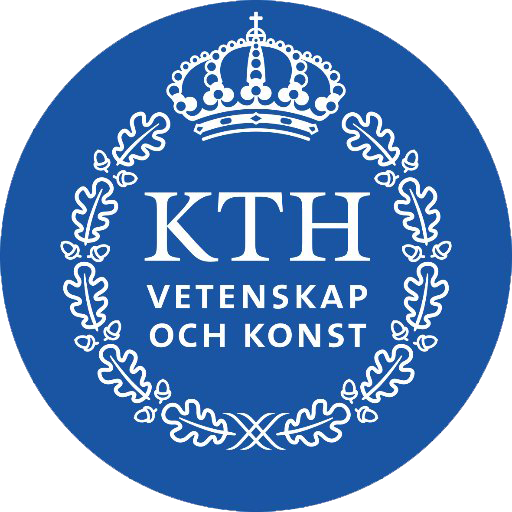Snabbfakta
-
- Amsterdam
- Rekrytering
Kategorier:
- Datateknik
- Data och IT
Titlar:
- Doktorand
Ansök senast: 2025-01-15
PhD Position in Accountable Usage Control for Distributed Data Processing Systems
Data exchange systems are distributed software systems that facilitate the sharing and processing of data assets (datasets and processing algorithms) between organisations. Organisations may be hesitant to participate in data exchange activities, as data assets may be sensitive due to privacy, commercial, safety or other types of constraints. As a result, researchers, innovators and policymakers miss out on opportunities to make the most out of data available at other organisations.
The Complex-Cyber Infrastructures (CCI), research group at the Informatics Institute (IvI) at the University of Amsterdam (UvA) is bringing together research on several relevant topics – such as privacy, security, usage control, normative (software) systems, and software languages – to advance the state of the art in data exchange systems. By combining advancements in these areas, the CCI group proposes novel data exchange solutions in which organisations retain control over the data assets they offer and the risk of data exchange is reduced through, for example, compliance with (privacy) regulations and security requirements. These solutions are brought into practice with industrial and societal partners within the Amsterdam Data Exchange (AMdEX) consortium.
The goal of this PhD position is to conduct fundamental research into novel distributed usage control models with high degrees of accountability, transparency, and human involvement (human-in-the-loop), whilst satisfying (other) legal requirements such as the handling of legal obligations and pre- and post-conditions on the usage of data assets. A particular challenge follows from the distributed nature of the studied systems – information required to make and justify access and usage decisions may be highly dispersed across the system and some of this information might itself be sensitive.
This PhD research is executed in the context of the AMdEX project within the Dutch Mobility Innovation ecosystem (the DMI Ecosystem).
What are you going to do?
To realize the aforementioned goals, you will study existing access and usage control models such as XACML and UCON. These models will need to be critically assessed based on elicited requirements, resulting in proposals for novel usage control models and novel data exchange systems. You will contribute to the development of control mechanisms, monitoring approaches, distributed data processing protocols and policy information protocols. You will interact with experts within the CCI group and the AMdEX consortium to elicit legal, privacy and security requirements on the proposed systems. You will develop prototypes and demonstrators based on usage scenarios from providers and consumers of data assets and data processing services, within the DMI ecosystem in particular. Proposed solutions are to be evaluated against functional and non-functional requirements, including security and privacy requirements and scalability.
As a PhD student you will also play an active role in the teaching activities of the department. Typical teaching duties involve assisting students during (programming) labs, assessing students work and (co-)supervising BSc and/or MSc graduation projects.
In this role you will apply and master your skills on the topics of software engineering in general and distributed computing in particular. You will perform cutting edge research on a crucial topic that directly impacts society and as a result develop yourself as a professional researcher in the aforementioned areas.
Embedded in the CCI group, you will become part of a large group of fellow PhD students and researchers actively pursuing and solving challenges related to systems and security research, software engineering and systems for data management and data analysis (e.g. using AI).
Tasks and responsibilities:
- conducting fundamental research in the field of distributed software systems under the supervision of members of faculty;
- collaborate with fellow PhD students and researchers within and outside of the department
- collaborate with privacy/legal experts from project partners, primarily to elicit requirements and gather feedback
- publish and present your work in journals and international conferences
- teaching in one of the bachelor or master programs of the department, typically as an assistant of one of the supervisors
- supervising Bachelor and Master students during their graduation project
- complete and defend a PhD thesis within the employment period
What do you have to offer?
- MSc in computer science, software engineering or related discipline (including near-graduates of the running academic year)
- Enthusiasm for the research process: studying research papers, solving complex problems, applying creative thinking, evaluation, reflection and disseminating findings via writing and oral presentations
- Programming experience, ideally in languages with clearly recognisable object oriented and/or distributed programming elements (such as Rust, Go, C++, etc.).
- The ability to design and implement modular and scalable software systems
- The ability to critically evaluated abstract models as well as concrete implementations
- The ability to work individually as well as effectively in a team
- Professional command of the English language
Appreciation for programming across (other) paradigms, e.g. functional or declarative programming, are a pre. It is a preference if you have experience in a professional environment and in interacting with people of different disciplines. Experience with blockchain, smart contracts, cloud and virtualization technologies may be an advantage.
Our offer
A temporary contract for 38 hours per week for the duration of 4 years (the initial contract will be for a period of 18 months and after satisfactory evaluation it will be extended for a total duration of 4 years). The preferred starting date is as early as 1st of August and no later than 1st of October. The work should lead to a dissertation (PhD thesis). We will draft an educational plan that includes attendance of courses and (international) meetings. We also expect you to assist in teaching undergraduates and master students.
The gross monthly salary, based on 38 hours per week and dependent on relevant experience, ranges between € 2,770 to € 3,539 (scale P). This does not include 8% holiday allowance and 8,3% year-end allowance. The UFO profile Promovendus/Promovenda is applicable. A favourable tax agreement, the ‘30% ruling’, may apply to non-Dutch applicants. The Collective Labour Agreement of Universities of the Netherlands is applicable.
Besides the salary and a vibrant and challenging environment at Science Park we offer you multiple fringe benefits:
- 232 holiday hours per year (based on fulltime) and extra holidays between Christmas and 1 January;
- multiple courses to follow from our Teaching and Learning Centre;
- a complete educational program for PhD students;
- multiple courses on topics such as leadership for academic staff;
- multiple courses on topics such as time management, handling stress and an online learning platform with 100+ different courses;
- 7 weeks birth leave (partner leave) with 100% salary;
- partly paid parental leave;
- the possibility to set up a workplace at home;
- a pension at ABP for which UvA pays two third part of the contribution;
- the possibility to follow courses to learn Dutch;
- help with housing for a studio or small apartment when you’re moving from abroad.
Are you curious to read more about our extensive package of secondary employment benefits, take a look here.
About us
The University of Amsterdam is the Netherlands' largest university, offering the widest range of academic programmes. At the UvA, 30,000 students, 6,000 staff members and 3,000 PhD candidates study and work in a diverse range of fields, connected by a culture of curiosity.
The Faculty of Science has a student body of around 8,000, as well as 1,800 members of staff working in education, research or support services. Researchers and students at the Faculty of Science are fascinated by every aspect of how the world works, be it elementary particles, the birth of the universe or the functioning of the brain.
The mission of the Informatics Institute (IvI) is to perform curiosity-driven and use-inspired fundamental research in Computer Science. The main research themes are Artificial Intelligence, Computational Science and Systems and Network Engineering. Our research involves complex information systems at large, with a focus on collaborative, data driven, computational and intelligent systems, all with a strong interactive component.
The Complex Cyber Infrastructure (CCI) group is part of the Informatics Institute at the University of Amsterdam. CCI's mission is to advance the trustworthiness of complex computer systems. We focus on decentralized systems with advanced technologies (e.g., cloud, edge, blockchain, data spaces), serving multiple stakeholders with different objectives. Our research aims at improving compliance with defined policies, security & privacy, and environmental sustainability, thus providing a solid foundation for advanced data analytics and artificial intelligence applications. We teach the next generation of computer science professionals, and cooperate with a large ecosystem of organizations. Our focus areas include data exchange systems, normative reasoning, security & privacy, software languages, and responsible software systems.
If you feel the profile fits you, and you are interested in the job, we look forward to receiving your application. You can apply online via the button below. We accept applications until and including 31 July 2024.
Applications should include the following information (all files besides your cv should be submitted in one single pdf file):
- a detailed CV including the months (not just years) when referring to your education and work experience;
- a letter of motivation;
- a list of publications;
- the names and email addresses of two references who can provide letters of recommendation.
A knowledge security check can be part of the selection procedure (for details: national knowledge security guidelines). Only complete applications received within the response period via the link below will be considered.
Do you have any questions or do you require additional information? Please contact:
- Dr. L. Thomas van Binsbergen, Assistant Professor
- E: l.t.vanbinsbergen@uva.nl


